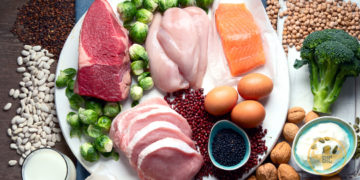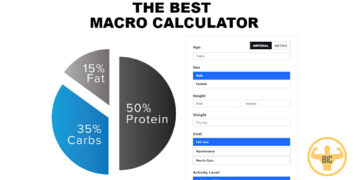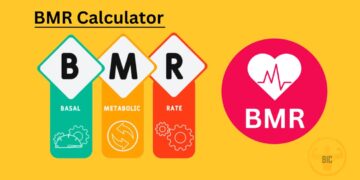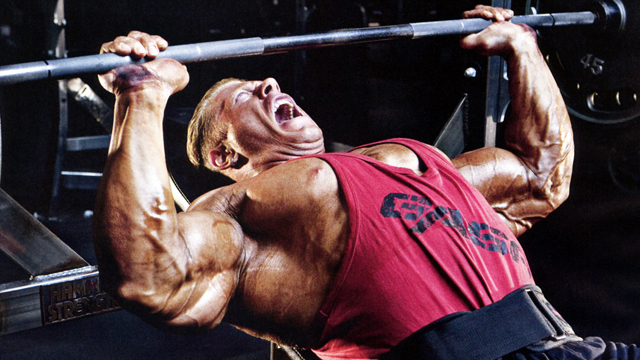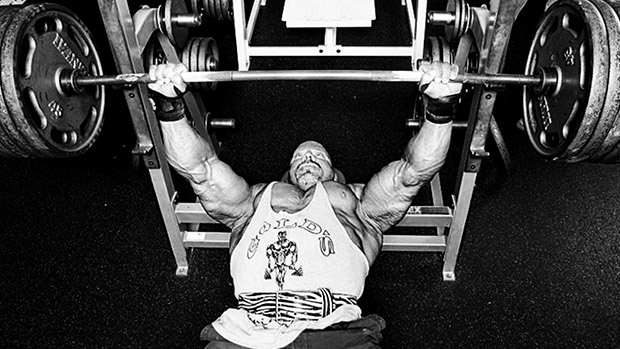Are you passionate about bodybuilding and looking to maximize your muscle growth? One key aspect to consider is your macronutrient ratios. By optimizing your intake of proteins, carbohydrates, and fats, you can fuel your workouts, support muscle recovery, and promote hypertrophy. This article will delve into the importance of macronutrients and provide insights into the ideal ratios for muscle growth in bodybuilding.
In the world of bodybuilding, achieving muscle growth is a primary goal. Alongside consistent training, adequate rest, and a structured workout routine, nutrition is pivotal in supporting muscle development. Protein, carbohydrates, fats, and macronutrients provide the necessary building blocks and energy for muscle repair and growth. Understanding the optimal macronutrient ratios can help bodybuilders make informed choices regarding their diet and achieve their muscle-building goals more effectively.
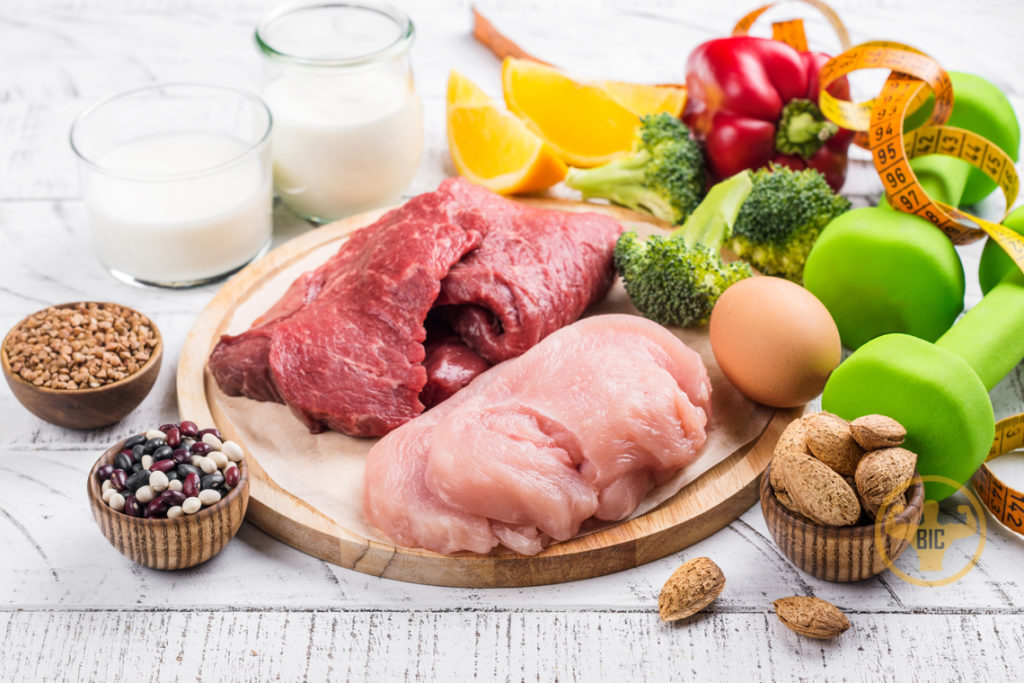
Understanding Macronutrients
Macronutrients are the three main components of our diet that provide energy in the form of calories. Each macronutrient has specific bodily roles essential for overall health and fitness.
Proteins: Proteins are crucial for muscle repair, growth, and maintenance. They are composed of amino acids, the building blocks of muscles.
Carbohydrates: Carbohydrates are the primary source of energy for the body. They fuel intense workouts, replenish glycogen stores, and support overall performance.
Fats: Fats are important for hormone production, nutrient absorption, and providing a concentrated energy source. Healthy fats contribute to optimal muscle growth.
Protein: The Building Block of Muscles
Protein is a critical macronutrient for muscle growth. It supplies the necessary amino acids that help repair and build muscle tissue. When engaging in intense resistance training, muscle fibres are broken down, and protein synthesis is crucial for their repair and growth. Aim to consume high-quality protein sources such as lean meats, poultry, fish, eggs, dairy products, and plant-based proteins like legumes and tofu.
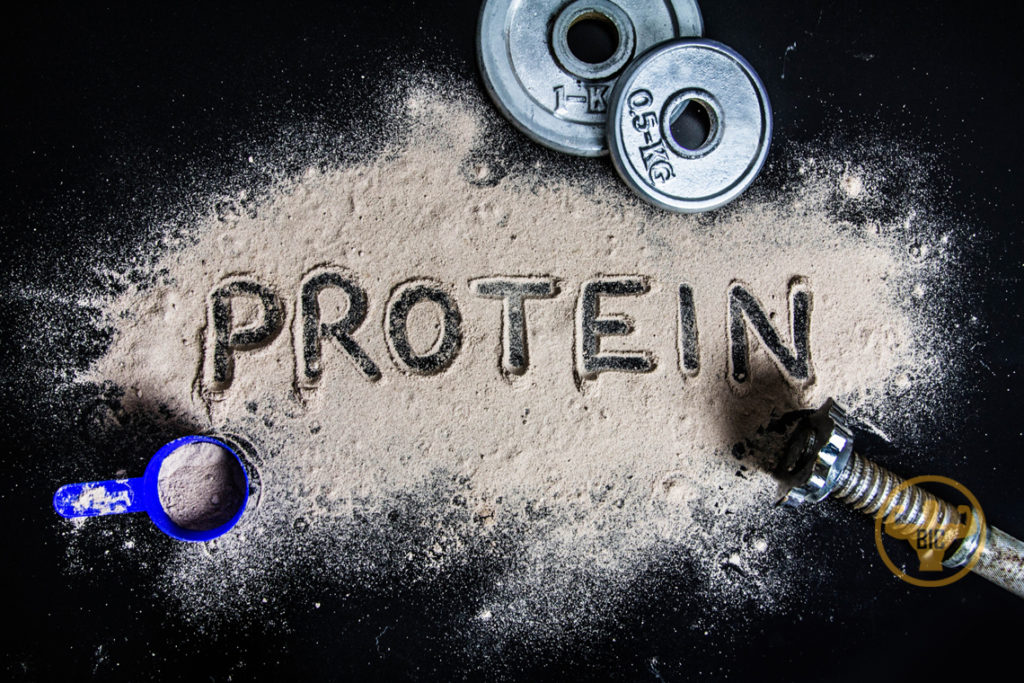
Carbohydrates: The Energy Source
Carbohydrates are the primary fuel source for bodybuilders. They provide the energy needed to perform intense workouts, prevent muscle fatigue, and support recovery. Opt for complex carbohydrates like whole grains, fruits, vegetables, and legumes, as they provide sustained energy and are rich in fibre, vitamins, and minerals.
Fats: Essential for Hormonal Balance
Although often feared, dietary fats are essential for muscle growth and overall health. They aid in absorbing fat-soluble vitamins, support hormone production, and provide a concentrated energy source. Incorporate healthy fats from sources like avocados, nuts, seeds, olive oil, and fatty fish into your diet.
Finding the Optimal Macronutrient Ratio
Determining the ideal macronutrient ratio for muscle growth can vary depending on individual factors such as body composition, metabolism, and training intensity. However, a commonly recommended starting point is to consume approximately:
Proteins: 25-35% of total daily caloric intake
Carbohydrates: 45-55% of total daily caloric intake
Fats: 20-30% of total daily caloric intake
These percentages can be adjusted based on individual preferences and goals. Focusing on high-quality sources within each macronutrient category is essential to optimize muscle growth and overall health.
PRO TIP: When cutting, adjust your protein, carbs, and fat. See the 6 foods that work HERE
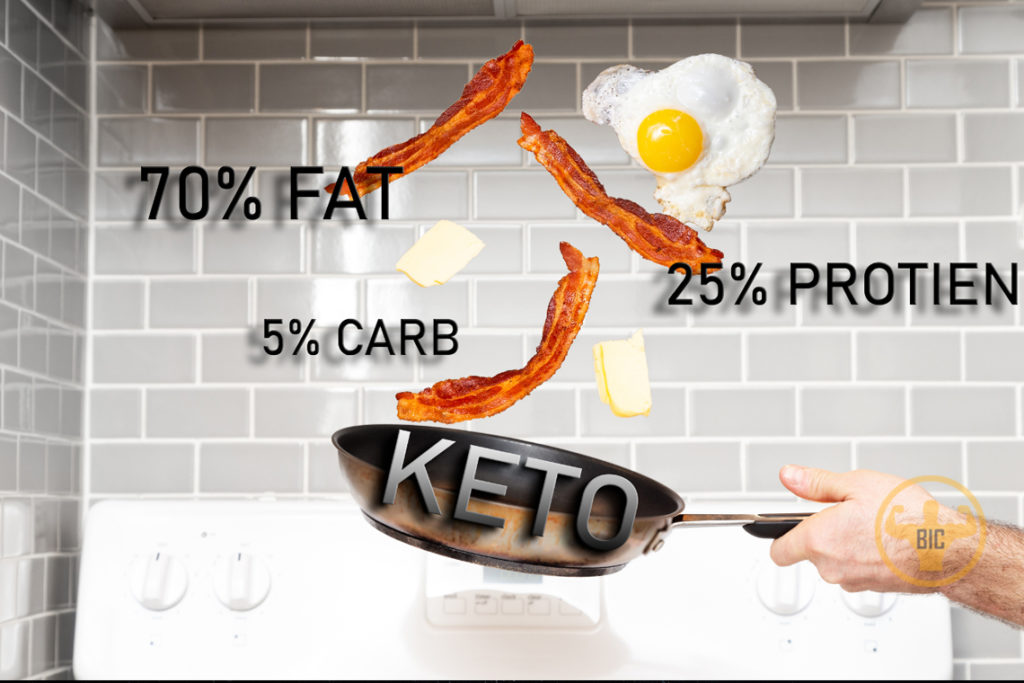
Adjusting Macronutrient Ratios Based on Individual Factors
While the macronutrient above ratio provides a general guideline, it’s crucial to personalize it based on individual factors. Factors such as body weight, activity level, metabolism, and body fat percentage should be considered when determining the optimal ratio. Consulting with a registered dietitian or a sports nutritionist can provide personalized guidance tailored to your needs.
Timing and Meal Frequency
Apart from macronutrient ratios, the timing and frequency of meals also maximize muscle growth. Consuming protein-rich meals or snacks within the post-workout window helps kickstart muscle repair. Aim to eat smaller, balanced meals throughout the day to provide a steady supply of nutrients to support muscle growth.
Hydration for Muscle Growth
Adequate hydration is often overlooked but is crucial for muscle growth. Water is vital in maintaining optimal cell function, transporting nutrients, and aiding muscle recovery. Drink sufficient water throughout the day, especially during and after workouts, to support optimal muscle function and growth.
Supplementation for Enhanced Performance
While a well-rounded diet should be the foundation, certain supplements can support muscle growth and enhance performance. Protein powders, branched-chain amino acids (BCAAs), creatine, and beta-alanine are popular among bodybuilders. However, it’s important to consult with a healthcare professional or sports nutritionist before incorporating any supplements into your routine.

Rest and Recovery: A Vital Component
Muscle growth occurs during periods of rest and recovery. Adequate sleep, typically 7-9 hours per night, is crucial for optimal recovery and muscle development. Additionally, incorporating active recovery days and allowing sufficient rest between intense training sessions is essential to prevent overtraining and promote muscle growth.
Tracking Progress and Making Adjustments
Track your progress regularly to ensure your macronutrient ratios effectively support your muscle growth. Keep a food diary, monitor your body composition, and assess your performance in the gym. Based on the results, adjust your macronutrient ratios and overall diet to optimize your progress.
Common Myths and Misconceptions
Several myths and misconceptions surround macronutrient ratios and muscle growth in bodybuilding. Some believe excessive protein leads to greater muscle gains, while others think carbohydrates should be eliminated. It’s important to separate fact from fiction and base your dietary choices on scientifically supported information.

Sample Meal Plan for Muscle Growth
To help you get started on your muscle-building journey, here’s a sample meal plan that incorporates the optimal macronutrient ratios:
Breakfast: Omelet with egg whites, spinach, and tomatoes + whole-grain toast
Mid-Morning Snack: Greek yoghurt with mixed berries and almonds
Lunch: Grilled chicken breast with quinoa and roasted vegetables
Afternoon Snack: Protein shake with banana and almond butter
Pre-Workout Snack: Rice cakes with peanut butter
Post-Workout Meal: Grilled salmon with sweet potatoes and asparagus
Dinner: Lean beef stir-fry with brown rice and broccoli
Evening Snack: Cottage cheese with pineapple chunks
Conclusion
Optimizing macronutrient ratios is crucial for muscle growth in bodybuilding. Understanding the roles of proteins, carbohydrates, and fats and finding the right balance for your body and goals can support muscle repair, enhance performance, and achieve your desired physique. Remember to personalize your macronutrient ratios, focus on high-quality food sources, prioritize hydration and rest, and track your progress to make necessary adjustments.
FAQs
Should I consume more protein to build more muscle?
Consuming adequate protein is essential for muscle growth, but excessive protein intake doesn’t necessarily lead to greater gains. Focus on meeting your recommended protein intake based on your body weight and activity level.
Can I build muscle while following a low-carbohydrate diet?
Carbohydrates provide energy for intense workouts and support muscle recovery. While low-carbohydrate diets may have certain benefits, it’s generally recommended to include carbohydrates for optimal muscle growth.
Are fats necessary for muscle growth?
Dietary fats are crucial for hormone production, nutrient absorption, and energy. Incorporate healthy fats from avocados, nuts, seeds, and olive oil into your diet.
How often should I adjust my macronutrient ratios?
Adjustments to macronutrient ratios should be made based on your progress and individual needs. Regularly track your results, consult a professional if needed, and adjust accordingly.
Can supplements replace a balanced diet for muscle growth?
Supplements should complement a well-rounded diet rather than replace it. Focus on whole foods first and consult a healthcare professional or sports nutritionist before incorporating supplements into your routine.













